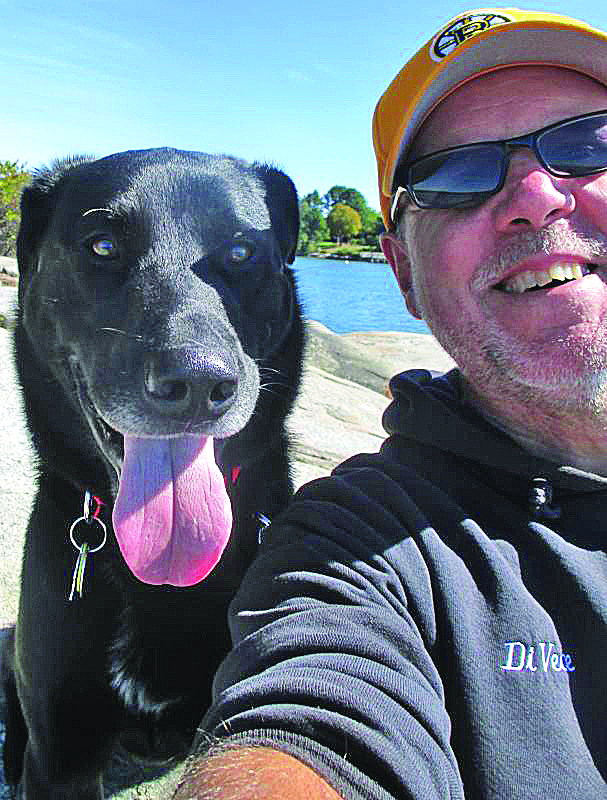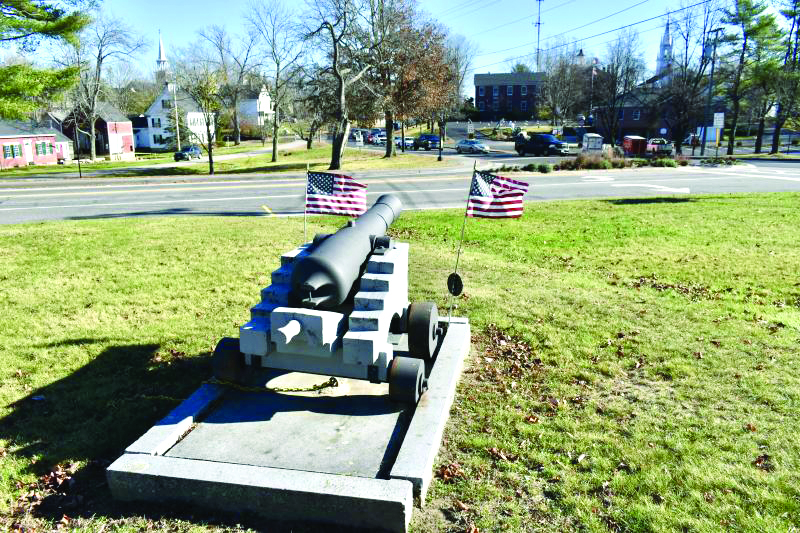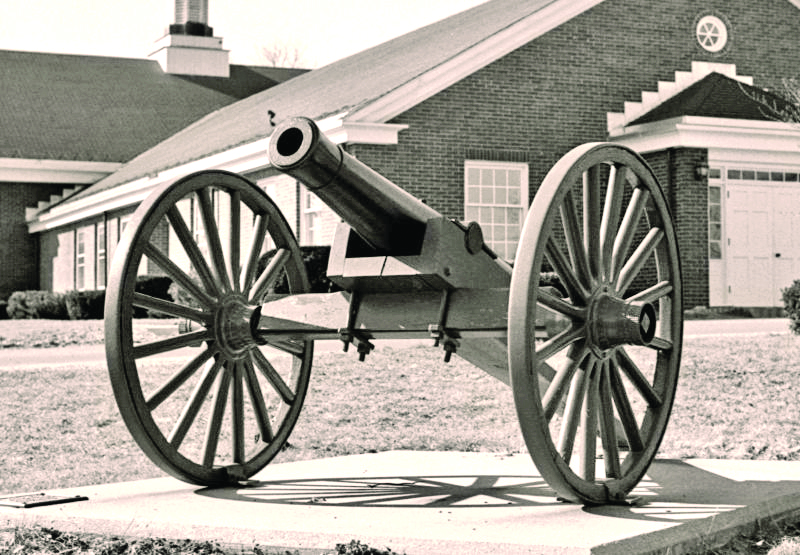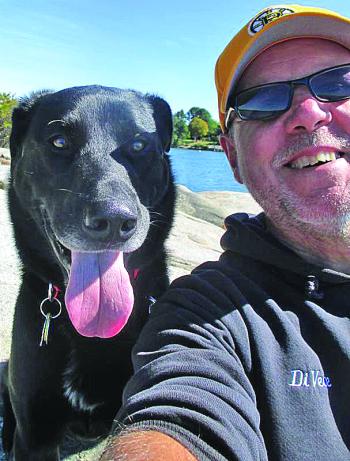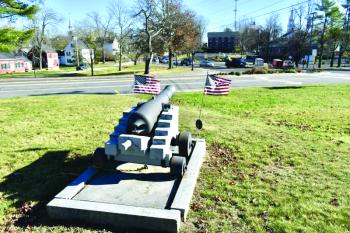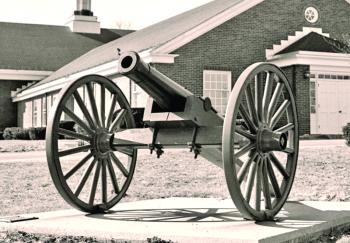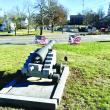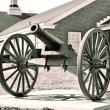Electioneering way back when
Presidential campaigns just aren’t what they used to be. Listen, campaigning using television, radio, social media, telephone calls and knocking on doors are child’s play compared to how candidates were promoted in our great, great, great, great grandfather’s time. Campaigns in the late 1800s were rollicking affairs even in small towns like Wiscasset.
They were occasions of great merriment featuring patriotic speeches, brass bands, fireworks, booming cannon salutes and times when jugs of white lighting and applejack were shared freely enough. The candidates, all men of course because women still hadn’t been granted the right to vote, relied on their allies to turnout the vote on Election Day.
There was no absentee balloting then. Two stories from Wiscasset’s past paint a colorful picture of what electioneering was like in 1877 and 1880 when memories of the Civil War continued to ignite passions.
Let’s start with the election of 1880. To get an idea what was happening in “Maine’s Prettiest Village” we’ll turn to a collection of day journals kept by a young Wiscasseter, Asa Willard Plumstead. Known as “Will” to his friends he lived on the family farm on a Back River peninsula now known as Young’s Point. Will, a “jack of all trades," raised sheep, cut hay, dug clams, harvested ice and later in life owned a flat-bottomed scow he hired out to carry bricks, lumber and pottery.
His 1880 entries give us a picture of what politics were all about. On the Fourth of July he writes of attending a political lecture at Montsweag Grange Hall in Woolwich featuring the Reverend Moses Hull of Boston. Rev. Hull, a self-proclaimed spiritualist and social reformer, was barnstorming his way across New England in support of the newly formed Greenback Party. The “Greenbacks” had a progressive agenda appealing to working-class voters. They promised legislation to address the concerns of farmers and offer better working conditions for laborers who worked in manufacturing. They also advocated for equal rights for women. Will doesn’t share with us any opinion concerning Rev. Hull’s lecture, but it must have made a good impression because in a later entry he writes of accompanying his father to a Greenback Convention hosted by the city of Gardiner.
Of particular interest is his Sept. 30 entry. Here, Will tells of a nighttime “Torch Light Rally” that featured marching bands and a boot-stomping march through the streets of Wiscasset. The celebration was held for the sole purpose of promoting the candidacy of H.M. Plaisted, the Greenback candidate for governor. Harris M. Plaisted, a Civil War veteran, had risen to the rank of brigadier general. After the war he entered politics serving a term as a Congressman followed by a stint as Maine’s Attorney General. After Gen. Plaisted severed ties with the Republican Party, the Greenbacks talked him into becoming their candidate for governor. He won too, over Republican Daniel F. Davis and by just 169 votes!
The Torch Light Ceremony must have been quite a show. Here’s how it was described in the Oct. 7, 1880 edition of the Lincoln County News. The event began after sundown with the arrival of two trains; one from Waldoboro, the other from Bath. The locomotives met head-to-head on the tracks at the Wiscasset depot on the upper end of Water Street. Arriving on the trains to liven up the crowd with a medley of Patriotic tunes were the Bath Drum & Bugle Corp and Waldoboro string band. Following some opening remarks by local dignitaries the crowd fell in behind a color guard for a parade of 500 to 600 torchbearers through the village.
Picture men clad in their faded blue GAR uniforms carrying Old Glory leading the huge procession and boys, arms linked, laughing and shouting bringing up the rear. The parade came to an end at the bandstand at the head of the Town Common with a booming cannon salute in front of the courthouse. Col. B.F. Smith, another Civil War veteran, then climbed the bandstand to introduce Gen. Plaisted, the Greenback’s gubernatorial candidate.
The next story concerns the Presidential election of 1876, significant because it was held during America’s Centennial celebration and probably the most controversial election in history. The candidates were Rutherford B. Hayes for Republicans, and Samuel J. Tilden for the Democrats. Tilden won the popular vote by a wide margin but fell one vote short in the Electoral College to claim victory. This situation naturally created confusion, anger, and bitter feelings among the Tilden supporters. Following months of political wrangling a Congressional Commission eventually awarded all 20 of the remaining Electoral College votes to Hayes declaring him the winner. When word reached Wiscasset by telegraph Hayes had been awarded the Presidency the Tilden supporters here were rightly incensed. But what happened next lives on in infamy. On the overcast March day when Hayes was to be inaugurated the Tilden faction gathered on the Town Common to hold a farewell salute to their candidate.
The common was much larger then because there was no U.S. Route One running through the middle of town. There was a grand wooden bandstand here and at the top of the hill sat the town cannon resting on wagon wheels, its smoothbore gun barrel pointed downtown. The gun had been bought by the townspeople at the start of the Civil War and initially placed at Fort Edgecomb for defense of the harbor. The bandstand is long gone. As for the cannon, it now rests on a Naval carriage and sits alongside the town’s war memorial at the municipal building. The cannon was never needed during the war but for a time was fired ceremoniously on occasions like the Fourth of July and political celebrations.
As I was saying, the Tilden supporters had solemnly raised the blue Tilden flag and began firing a series of booming farewell cannon salutes to their defeated candidate. It was during a final salute the old gun suddenly fired prematurely sending the two men loading it flying from its barrel in a blinding flash of smoke and fire. Miraculously, no one was killed in the accident but both men were left maimed for life.
The Seaside Oracle carried a story of the horrific accident in its weekly edition of Saturday, March 10, 1877. Here are a few excerpts: “A fearful accident occurred at Wiscasset on Monday afternoon,” it begins. “About four o’clock a crowd of excited men took possession of the gun on the Common and proceeded to fire a salute of seven guns. Whether the accident was due to carelessness on the part of the man who ‘thumbed’ the gun, or of the men who should have properly cleaned it before putting in the cartridge, is an open question, but as they were ramming in the seventh cartridge the powder ignited and the cannon was prematurely discharged, the ramrod being thrown down Main Street …”
The two men manning the change were “severely burned and mutilated,” it continues, one losing both arms up to his elbows; the other having his right hand blown off. With that said, electioneering today is pretty tame by comparison, although I admit some of those recent political ads on TV were pretty hard to stomach.
Phil Di Vece earned a B.A. in journalism studies from Colorado State University and an M.A. in journalism at the University of South Florida. He is the author of three Wiscasset books and is a frequent news contributor to the Boothbay Register-Wiscasset Newspaper. He resides in Wiscasset. Contact him at pdivece@roadrunner.com

